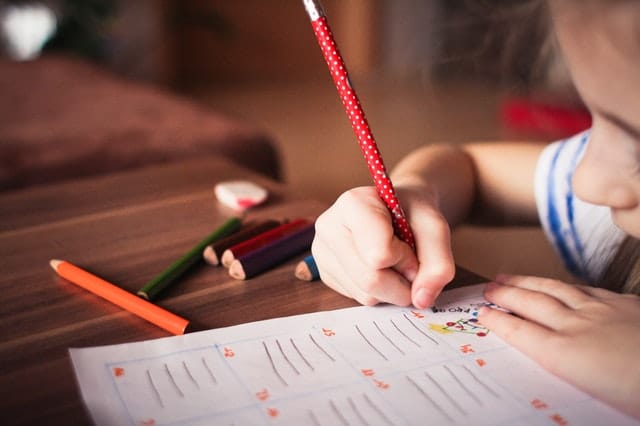When your child brings home a report card with more Ds and Fs than As and Bs, you’re likely to be disappointed – and they’ll probably lose a few privileges.
While “it’s not my fault!” is one of the oldest excuses in the book (right after “my dog ate my homework”), there may be some truth to that statement if your child is suffering from an undiagnosed hearing loss.
Poor Grades = Poor Hearing

Many children with less-than-stellar academic performance are assumed to suffer from a learning disability.
Inattentiveness, misbehavior and bad grades are all hallmarks of common learning disorders such as ADD and ADHD, but the problem might be physical rather than psychological: these same symptoms can be indicative of hearing loss.
Hearing Loss isn’t Merely Confined to Older Adults
It can – and does – affect people of all ages. 1.3 out of every 1,000 eight-year-olds have bilateral hearing loss in Tucson, according to the Centers for Disease and Control (CDC).
And about 14.9 percent of Arizona children aged 6-19 experience hearing loss of at least 16 decibels (dB).
The consequences are serious: hearing loss can negatively affect a child’s speech and language development, as well as their emotional and social health – factors that often contribute to poor academic performance.
Early intervention is crucial to your child’s long-term success. Children with mild to moderate hearing loss may fall one to four grade levels behind their peers if they do not get the help they need.
And those with severe hearing loss who do not receive intervention often won’t progress beyond the third-grade level. The reasons have nothing to do with intelligence; a child who is unable to hear well may simply miss part of the lesson or misunderstand a homework assignment.
A hearing impairment can also affect speech comprehension, making it difficult to understand certain consonant sounds. Poor social interactions with other students can create resentment, anger and loneliness.
Benefits of Early Intervention
Early intervention goes a long way toward improving a child’s academic performance – and has the added benefit of improving social interactions with peers. Intervention strategies require a team approach involving parents, teachers and hearing care professionals.
There are many techniques available, depending on your child’s age, degree of hearing loss, speech/language ability and educational performance.
If your child is struggling in school and displaying behavioral problems such as inattentiveness, daydreaming, acting out in class, responding inappropriately to questions and having problems with speech, schedule an evaluation with a Tucson audiologist as soon as possible.
The earlier your child has a hearing test and receives treatment for a hearing impairment, the better their odds of long-term academic success.